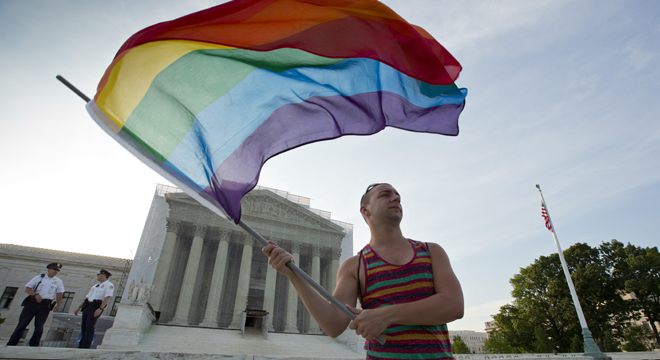The Supreme Court on Wednesday struck down the heart of the Defense of Marriage Act, the 1996 federal law that prohibits married same-sex couples from receiving federal benefits.
The landmark 5-4 decision written by Justice Anthony Kennedy, and joined by the liberal-leaning justices, invalidated Section 3 of the law, which prohibits same-sex couples from receiving federal tax, retirement and immigration benefits.
The decision means couples married in their states will be treated equally by the federal government regardless of their sexual orientation.
“DOMA is unconstitutional as a deprivation of the equal liberty of persons that is protected by the Fifth Amendment,” Kennedy wrote for the Court. “DOMA’s principal effect is to identify a subset of state-sanctioned marriages and make them unequal.”
Kennedy’s opinion struck down DOMA in part on equal protection and due process grounds, and in part because marriage is a state issue, determining that Congress lacks a constitutional basis not to recognize definitions set by states.
Chief Justice John Roberts and the other three conservative justices dissented.
One important consequence of the ruling against DOMA is that Americans will be allowed to sponsor a foreign same-sex spouse for U.S. permanent residency and citizenship — a luxury that has thus far only been afforded to opposite-sex couples.
The case was brought by Edie Windsor, a lesbian widow from New York who turns 84 this month and was required to pay more than $300,000 in taxes on the inheritance of her late wife’s estate. The Obama administration began arguing in 2011 that the law was discriminatory and unconstitutional — a rare move for the federal government. It urged the Court to strike down DOMA in United States v. Windsor.
UNITED STATES v. WINDSOR, EXECUTOR OF THE ESTATE OF SPYER, ET AL.






